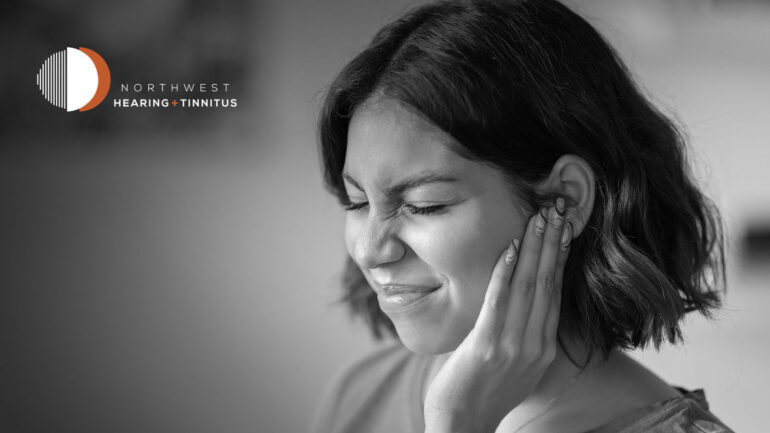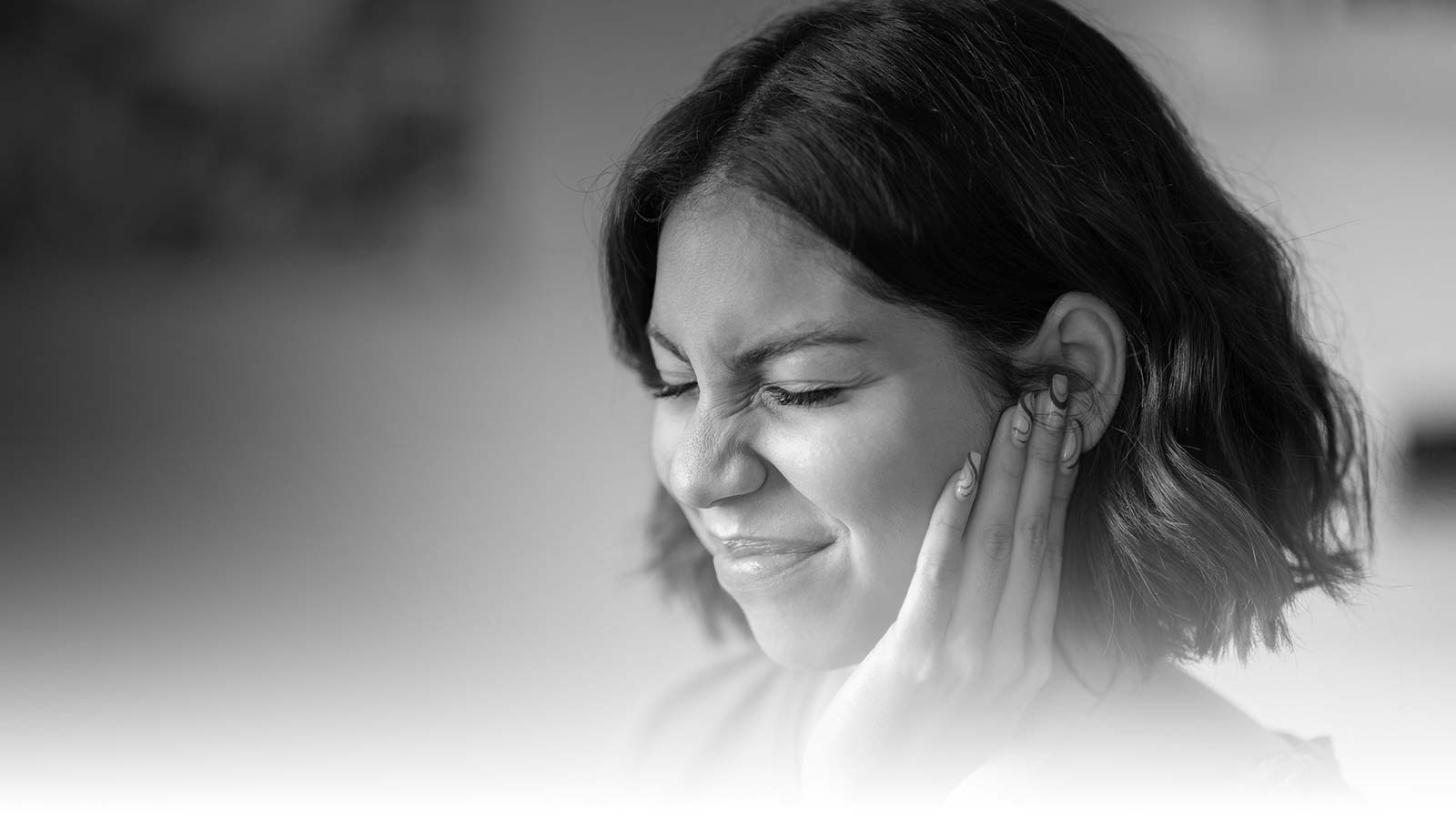Understanding Hyperacusis: 6 Common Questions
Hyperacusis is a condition that affects individuals’ perception of sound, causing an increased sensitivity to everyday sounds. If you are experiencing symptoms of hyperacusis, it’s important to seek professional evaluation and guidance. At Northwest Hearing + Tinnitus in Seattle, WA, our expert audiologists specialize in diagnosing and treating hyperacusis. In this article, we will address six common questions about hyperacusis, providing valuable insights and information to help you better understand the condition and its management.
6 Frequently Asked Questions About Hyperacusis
1. What is hyperacusis?

Hyperacusis is a condition characterized by an abnormal sensitivity to sound. People with hyperacusis perceive certain sounds as excessively loud or painful, which can significantly impact their daily lives. The condition can arise due to various causes, such as exposure to loud noise, head injuries, ear infections, or as a side effect of certain medications.
Hyperacusis can occur alongside other hearing conditions, such as tinnitus or hearing loss.
The symptoms of hyperacusis can vary, but common experiences include discomfort or pain in response to ordinary sounds like conversations, footsteps, or background noise. In some cases, even sounds at a normal volume can be overwhelming. Understanding the nature of hyperacusis is crucial in seeking proper evaluation and guidance for effective management.
2. What are the common symptoms of hyperacusis?
Hyperacusis manifests differently in individuals, but common symptoms include heightened sensitivity to everyday sounds, a feeling of sound distortion or discomfort, and an increased emotional response to noise. People with hyperacusis may experience physical sensations like ear pain, headaches, or a sense of pressure in response to specific sounds. The range of triggering sounds can be wide, including noises that are considered normal to others.
Individuals with hyperacusis may also encounter challenges in noisy environments, social situations, or workplaces, leading to anxiety, stress, and reduced quality of life. Understanding the symptoms helps individuals recognize their condition and seek appropriate evaluation and treatment.
3. How is hyperacusis diagnosed?
Diagnosing hyperacusis involves a comprehensive evaluation conducted by an experienced audiologist. At Northwest Hearing + Tinnitus, our specialists employ a thorough assessment to determine the presence and severity of hyperacusis. The evaluation typically includes a detailed discussion of symptoms and medical history, followed by a physical examination of the ears.
To assess sound sensitivity and discomfort levels accurately, our audiologists may perform specific tests, such as loudness discomfort levels (LDL) or uncomfortable loudness levels (ULL). These tests measure the intensity of sounds that trigger discomfort or pain. Additionally, we may conduct audiological assessments to evaluate hearing function and rule out other potential causes of sound sensitivity. Through this diagnostic process, our experts can provide an accurate diagnosis and personalized treatment plan.
4. What are the treatment options for hyperacusis?
Treating hyperacusis often requires a multidisciplinary approach tailored to the individual’s specific needs. At Northwest Hearing + Tinnitus, our team of specialists offers comprehensive treatment options for hyperacusis. These may include sound therapy, counseling, and other therapeutic techniques.
Sound therapy aims to desensitize the auditory system by introducing low-level, tolerable sounds to gradually reduce sensitivity to environmental sounds. Counseling helps individuals develop coping strategies and address any emotional distress associated with hyperacusis. Cognitive-behavioral therapy (CBT) may also be utilized to reframe thoughts and reactions to sound, reducing the impact of hyperacusis on daily life.
In some cases, our audiologists may recommend hearing protection devices, such as specialized earplugs or earmuffs, to manage sound exposure. Additionally, identifying and addressing any underlying conditions, such as tinnitus or hearing loss, can contribute to overall symptom management.
5. Can hyperacusis be cured?
While there is currently no known cure for hyperacusis, the condition can be effectively managed with proper evaluation and treatment. With the guidance of our experienced audiologists at Northwest Hearing + Tinnitus in Seattle, WA, you can explore various therapeutic techniques and strategies to alleviate symptoms and improve your tolerance to sound. It’s important to remember that each individual’s response to treatment may vary, and a personalized approach is necessary to find the most effective management plan for you. While a complete cure may not be attainable, significant improvement and enhanced quality of life are achievable goals.
6. How can I manage or cope with hyperacusis?
Managing and coping with hyperacusis involves a combination of strategies tailored to your specific needs. Our team of specialists at Northwest Hearing + Tinnitus can provide valuable guidance and support throughout your journey. Some effective coping techniques include:
- Environmental Modifications: Make adjustments to your living or working environment to minimize exposure to loud or triggering sounds. This can involve using sound-dampening materials, creating quiet spaces, or utilizing background noise machines to mask sounds.
- Hearing Protection: Utilize specialized earplugs or earmuffs when exposed to loud or potentially bothersome sounds. Our audiologists can help you choose appropriate hearing protection devices based on your specific needs.
- Relaxation Techniques: Engage in relaxation exercises such as deep breathing, meditation, or yoga to reduce overall stress levels and promote a sense of calmness, which can help manage hyperacusis-related anxiety.
- Counseling and Support: Seek counseling or join support groups to connect with others who experience hyperacusis. Counseling can provide emotional support, guidance in coping strategies, and an opportunity to address any psychological impact associated with hyperacusis.
- Avoidance of Noise Overexposure: Be mindful of your sound environment and take precautions to limit exposure to excessively loud sounds. Avoid situations or venues where noise levels may exceed your tolerance.
By incorporating these strategies into your daily life and working closely with our audiologists, you can effectively manage hyperacusis and reduce its impact on your well-being.
Get the Help You Need for Hyperacusis
If you are experiencing symptoms of hyperacusis, it’s crucial to seek professional evaluation and treatment. Northwest Hearing + Tinnitus in Seattle, WA, is dedicated to providing expert evaluation and tailored management strategies for hyperacusis. By understanding the nature of hyperacusis, recognizing its symptoms, undergoing thorough diagnosis, and exploring the available treatment options, you can take proactive steps towards improved quality of life and better sound tolerance. Contact our clinic to schedule an evaluation with our experienced audiologists and embark on your journey towards effective hyperacusis management.
